A digital executive and entrepreneur with over 15 year’s experience across a variety of businesses, Stephany Kirkpatrick is the CEO and founder of Orum, the simplest API integration for instant payouts. Stephany founded Orum in 2019 on the belief that consumers should have immediate access to their money. Today Orum helps businesses rethink money movement by providing instant access to all major payment rails without costly bank integrations or prolonged compliance. The daughter of an immigrant, and a Certified Financial Planner, Stephany has dedicated her career to helping those that have less, have more.
What does “entrepreneurship” mean to you?
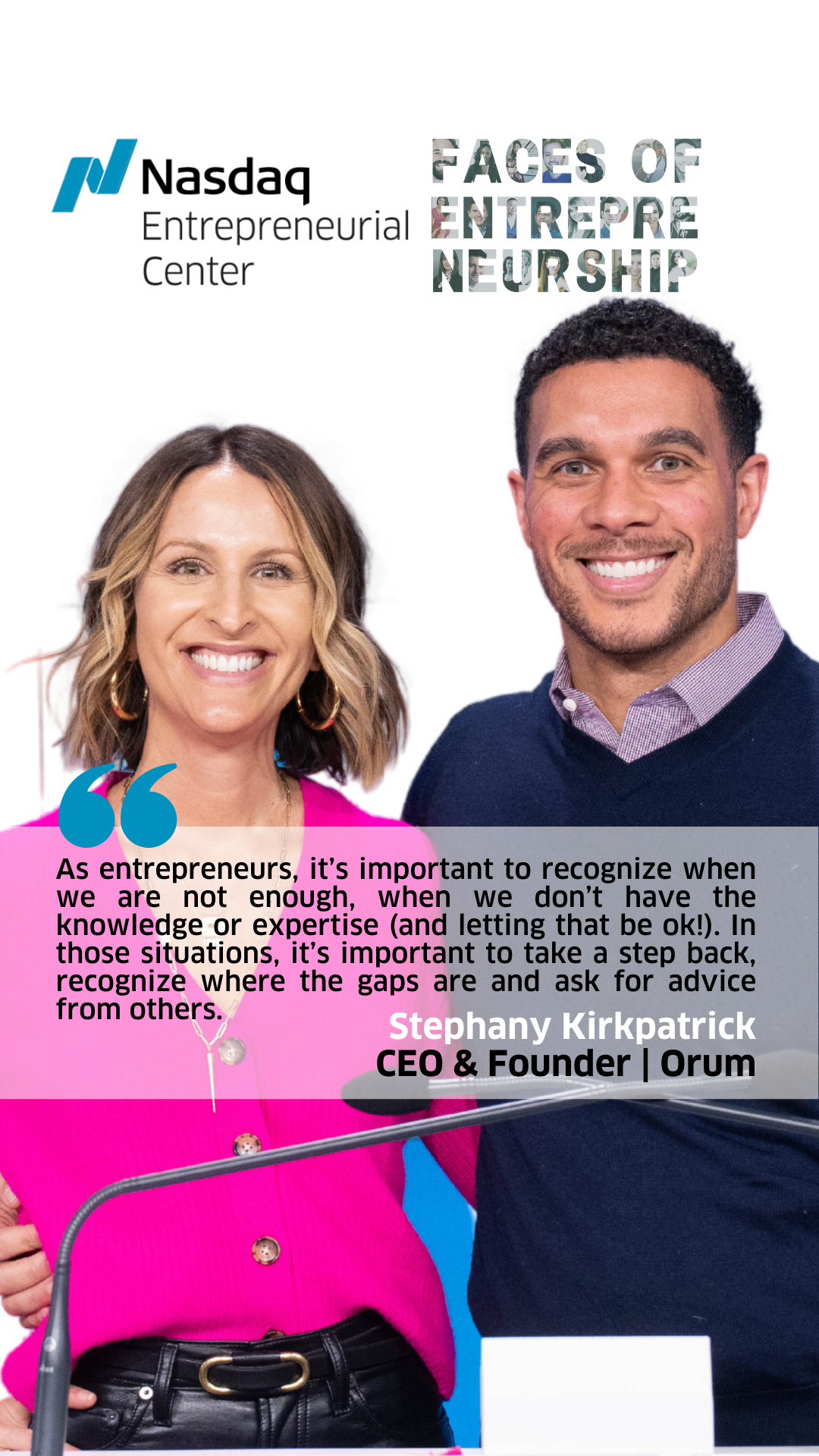 Stephany Kirkpatrick: For me, entrepreneurship means a host of things. It means seeing something you are passionate about and putting in the energy to bring it to life. Entrepreneurs not only have ideas, but they want to find ways to make those ideas bigger and actionable. They see business opportunities where others don’t.
Stephany Kirkpatrick: For me, entrepreneurship means a host of things. It means seeing something you are passionate about and putting in the energy to bring it to life. Entrepreneurs not only have ideas, but they want to find ways to make those ideas bigger and actionable. They see business opportunities where others don’t.
Entrepreneurship also means taking risks and being OK with the outcome, whatever it may be (even if it’s a failure). It means working through failures, embracing them as learnings and showing up every day with grit, conviction and mindset of resourcefulness – the greatest entrepreneurs know how to find the smallest wedge into a market with the fewest resources.
Tell us about your first experience with entrepreneurship.
SK: My dad was a small business owner, and I watched him build a company from scratch – as a kid and then as a teenager I sat in his office doing all kinds of tasks so I could learn how a business works. Everything from the billing (I started as the stamp licker, back when stamps were not a sticker) to the hands-on work with customers
As I launched into my career in financial services I quickly found myself fiddling with software as a way to make financial advice easier and more useful – this is when I did my first tech build and started to realize that I loved building things from scratch.
As I moved into tech full time at LearnVest, I went from tinkering to a full blown startup experience. I joined just after the company’s Series A and was responsible for developing the product strategy and operating structure to launch a fee-only financial planning business to service clients on a nationwide basis. This included building an RIA business from the ground up and staffing it from 0 – 100 within the first two years of operations. It also included the development of the company’s proprietary financial planning software, which is now patented IP. Through that experience, I learned so much about what it takes to scale a fast growing business in the early days of fintech.
What is your company’s origin story? What is the biggest reason you started your business? What did those early days look like and teach you?
SK: My first experience in finance was as a CFP where I was able to make my first mark in helping those who have less, have more. On this scale, I was able to impact hundreds of people but it wasn’t massive. I realized technology was the way to have more impact on more people, and so I built a piece of financial software that I eventually sold to a bank.
That’s where I got my first taste of what it’s like to build something from scratch.
As a part of that process, I met Alexa von Tobel, founder of LearnVest, which is when I broke into the startup/tech space. At LearnVest, I started as the VP of operations and financial planning. Through that experience, I learned so much about what it takes to scale a fast growing business in the early days of fintech. I also saw how I could multiply my impact – I went from impacting the financial lives of hundreds as a CFP to tens of thousands through software. After LearnVest was acquired by Northwestern Mutual in 2015, the impact went up to millions (if not more).
Through these experiences, I kept thinking about how I could maximize the impact my work was having on larger and larger groups of people, which is ultimately what led me to found my own company.
On a more personal level, however, my experience growing up as the daughter of an immigrant had a huge influence on my founding of Orum and the way I think about money. My father experienced many of the same things we see in the headlines today regarding refugees and their experiences in new countries. Growing up, we didn’t always have a lot and were constantly thinking about how to do more with less. It’s very much shaped who I am today and how I think about payments, and Orum specifically – how can I help those who have less, have more?
Being able to give people access to their own money when they need it, rather than waiting days for it to move through different payment rails, is a big part of making that a reality. All too often, people are held back because they can’t access their money on holidays, nights, weekends, etc. For many people, that could be the difference between paying rent or a utility bill. This is why I founded Orum – to make it easier for people to access their money when they need it most.
What do you wish you knew when you started? Is there anything you would do differently?
SK: I have made many mistakes, but those missteps make me who I am today. I have failed epically, I have cried deeply over things, I have hired the wrong people, I have been the reason a client said no and revenue was lost. The lesson in all this is if you are taking risks, failures will happen but you gain invaluable insights. This shapes how you approach your next challenge, and if you learned from it, you will not make the same mistake twice.
What does “success” look like for you? We’d love to hear your biggest, boldest dream? What do you think will help you achieve it?
SK: In my opinion, success is not a distant thing that you work tirelessly for. It is being able to do something every day you are proud of.
For me, success is waking up every day and working with a team of wildly talented people who share a passion and conviction for the problem we are solving at Orum. I also get to empower other women – both as an employer and as a mentor – to take on game changing challenges themselves.
At the end of the day, success is defined so personally. Big bold dreams come in all shapes and sizes and the measure I place is a simple equation: does it fuel your soul? Are you proud of your work? Did you try your hardest? Did you lift others up along the way? If you can answer “yes” to most of those questions, then you are succeeding.
What is your superpower as an entrepreneur? What is your proudest and darkest moment so far? Share a key high and a key low from your journey if you can.
SK: In the early days of founding my company, Orum, we had a massive commercial opportunity with a well-known partner in front of us. I was so focused on — even obsessed with — securing this multi-million-dollar deal that I put everything into it. I spent countless hours in front of my computer and late nights away from my family. Then we lost the deal.
I was wracked with guilt, and my first thoughts were familiar hustle-culture toxic talk: If only I had spent a little more time thinking about new approaches, a little more time collaborating with my team, a little more time in front of my computer. But the thing is, it wasn’t about the time I had put in (or hadn’t). I wasn’t asking the right people around me for help.
Today, one of my greatest superpowers is my “911” list of informal advisors that I can tap into when I need advice, a gut check or a listening ear. This network is composed of other founders or business leaders who are having (or who have had) similar experiences. As entrepreneurs, it’s important to recognize when we are not enough, when we don’t have the knowledge or expertise (and letting that be ok!). In those situations, it’s important to take a step back, recognize where the gaps are and ask for advice from others.
What are your personal driving principals, your top values?
SK: Personally, my #1 value is reliability – you can rely on me for whatever I commit to doing, and I want to surround myself with people I can rely on for the things they commit to doing as well.
I also deeply value curiosity and diversity of thought through diversity of people – I think this is the intersection where innovation has its greatest potential.
How have your personal principles and values shaped your company’s values and principles?
SK: One of our core values is diversity of thought through diversity of people. If we tackle problems from different backgrounds and perspectives, the intersection of those differences is where we find our strength that distinguishes us from others. There are a TON of components that go into making money move faster and we need people from diverse backgrounds to reimagine each step of the process.
What’s it like to work alone or with your partners?
SK: While work is remote at Orum, it’s not distant. We believe that being a remote-first organization allows us to build a multidimensional team composed of diverse backgrounds and skill sets. But we always find ways to come together, too. For example, I recently instituted 15 minute “donut” meetings every week and Cafeteria on Fridays with lunch included, as small ways to ensure connection.
Do you have a mentor? Tell us about what makes them valuable to you and your business?
SK: My mentorship journey started with the mentorship I received from other women leaders. I previously worked under the tutelage of two female CEOs – Alexa Von Tobel of LearnVest and Melanie Whelan of SoulCycle. These were a few of the female mentors that helped encourage me and steered me away from imposter syndrome. They helped get me in the right rooms, introduced me to the right people and opened critical doors. By the time I founded Orum, I was well equipped with the tools needed to thrive as a female entrepreneur.
These women are also still on my “911” call list. I value their experience tremendously and they provide important advice at critical moments.
What role does mentorship play in your world (as a mentor or mentee)?
SK: Because of the wonderful mentorship I received from other women, I’ve always wanted to pay it forward. I started out as a mentor with Hey Mamma where I mentored other working moms looking to grow their careers and families. This ultimately led to her mentoring more women at Orum and in my network more broadly – I’ve been an angel investor to numerous female-founded companies and offer my assistance in any way I can.
Many entrepreneurs continue to perfect their daily routines to support their work and greater vision; would you mind sharing your morning routine or a regular ritual that grounds your work each day?
SK: I live by Superhuman as the best email hack ever. I’m proud to say I get to inbox zero every day. I also think that sleep is an overlooked aspect of being great at productivity. When I am rested, I am able to focus and execute, I can think harder and deeper.
What are you reading or have read?
SK: I am a fiction fan through and through and I always choose books over anything else. Don’t ask me about the latest popular TV show or movie because I probably don’t know the details!
I just finished five books on vacation and loved Lessons in Chemistry, The Fire Keepers Daughter, The Displacements, A Heart That Works (get ready to cry!) and the 6:20 Man. My top management reads include: The CEO Next Door, The Hard Thing about Hard Things, Essentialism and Why We Sleep.
Where do you go for inspiration?
SK: Yoga and running are critical to my mental health. It’s often when I’m away from my computer that I get the best ideas.
I also love hiking and try to get as much fresh air as I can year-round. I strongly believe that the best thinking happens when you aren’t focused on finding the answer
Do you have a favorite quote, mantra, or words of wisdom to get through the tough days?
SK: It’s quirky, but there is this incredibly inspiring phrase painted all over NYC – “In Pursuit of Magic.” Once I discovered it, it became my mantra for life. It’s about finding all the magic big and small and savoring it while also knowing that there is always more to be found.
What is a problem that keeps you up at night?
SK: It’s no secret that within tech there are very few women or underrepresented minorities. As such, I am deeply committed to fostering more STEM education programs at the elementary level so that more young people – regardless of gender or background – can be exposed to this as a potential career path later on. To build toward more women in tech, or more female founders, for example, we need more women to choose education that favors the sciences. More women receiving computer science degrees means more female engineers in the workforce, which means more women becoming technical founders.
How do you think about helping others through your work?
SK: This goes back to our mission at Orum. We believe that by giving people the confidence to quickly access their money, we can bring financial opportunity to all, not just the few. Orum’s thesis is that we simplify a complex process of accelerating money movement for our customers so that they can build better products for their end user. This ultimately leads to better opportunities for financial inclusion.
What advice do you have for fellow (and aspiring) entrepreneurs building and leading teams?
SK: One of my biggest pieces of advice for entrepreneurs is to ask for help. Surround yourself with investors, advisors and others who have expertise in fields you’re unfamiliar with. It’s ok not to know everything.
What kind of an entrepreneur do you want to be known as – as in, what do you want your legacy to be?
SK: I want to be someone people always want to work with again. I want my legacy to be impactful in a variety of ways but the most important one to me is that I am known as someone who will support those around me, that I am reliable and good for my word, and that I was able to bring joy and passion and fun to whatever challenge we may be chasing!
Do you have someone you’d like to nominate to be profiled in our Faces of Entrepreneurship series? Please let us know by emailing media@thecenter.nasdaq.org or submit your nomination using this form.
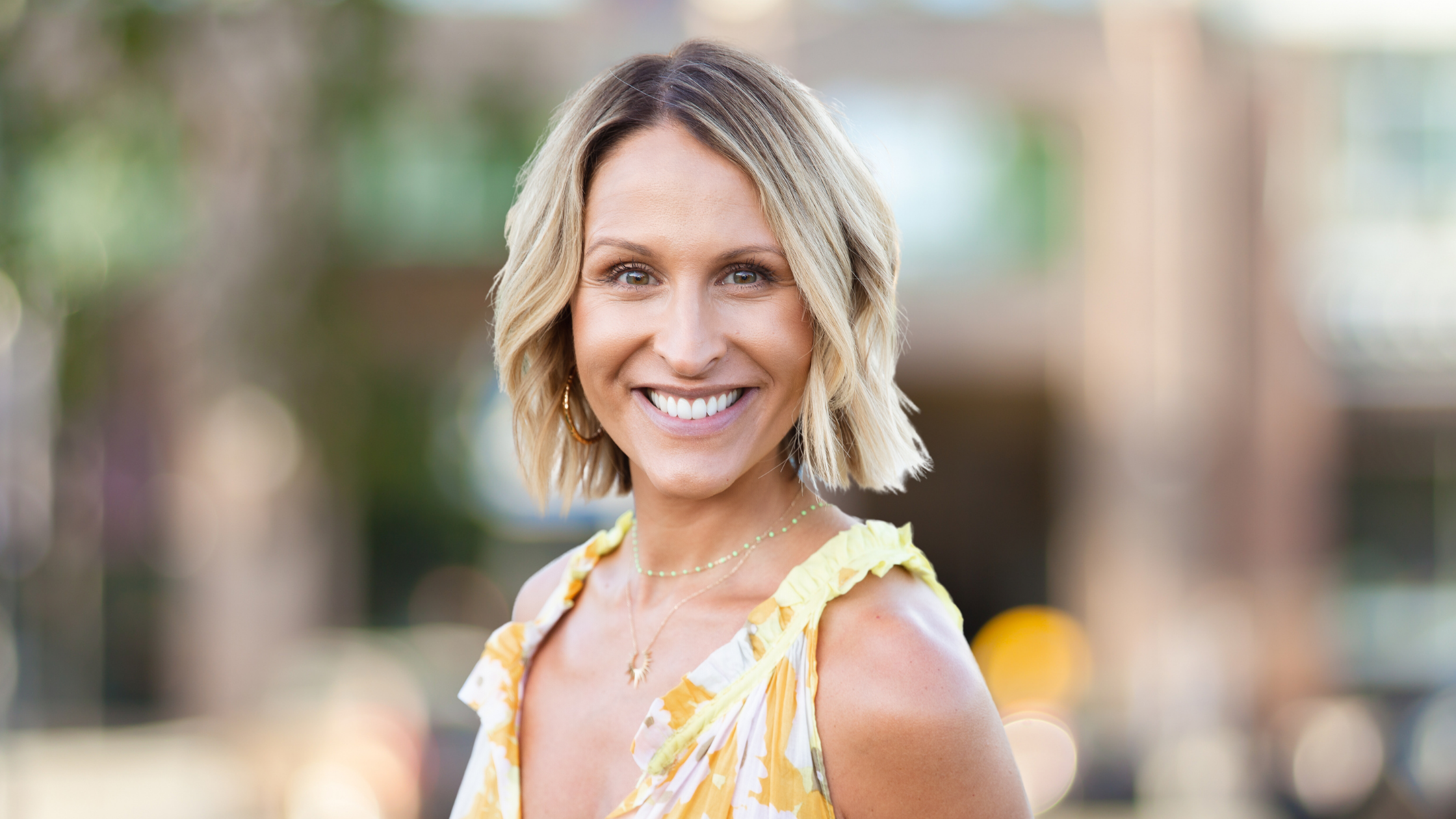
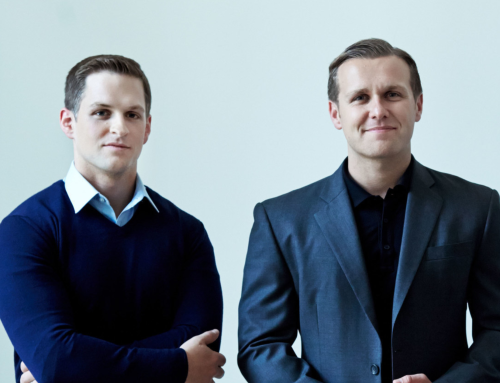
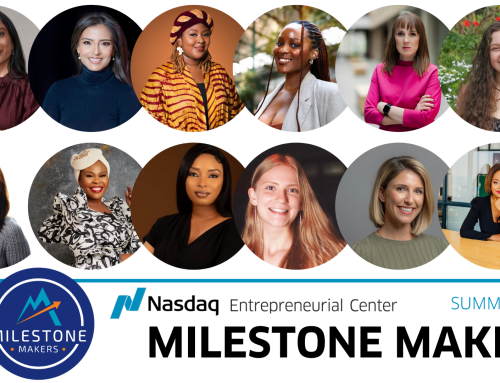
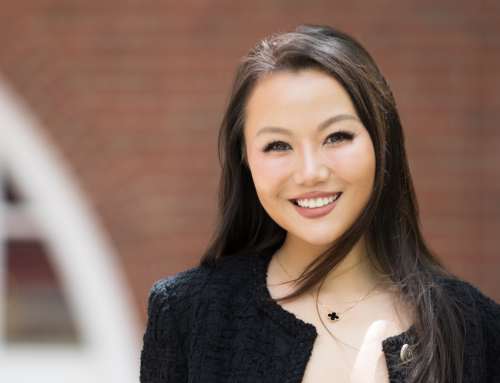
Invite a Friend
Close